So, You Want To Be A Masonry Instructor…
Words: Curtis Hoover
Do you have what it takes? We have all been mentors at one time or another. When the opportunity comes along for you to teach the trade full-time, there's more to it than you think. It's substantially more than just teaching the students how to lay bricks and blocks. Is this opportunity at a High School, college, local masonry association, correctional institution, or your local union training center? What's next depends on where the jurisdiction is located. Each county, state, or local government will have its own set of qualifications that you must be able to meet.
Let's get into the process once you have completed your application. This can be a fairly lengthy process for Secondary and Post-Secondary education applicants. There will be an interview with personnel at the Board of Education or Human Resources. This will be the first step; they will be asking questions to see how you respond to certain scenarios that could come up in the classroom. You have to remember that you are now applying to work for a public school system and that this first interview will determine if you qualify for the second interview. Whatever system you are applying for, go to their website and review the system's policies for students and teachers. So much has changed over the last couple of years, and you need to be up-to-date on them. Your next interview will be at the school with the Principal or Dean. They will have other school personnel such as the Vice-Principal, Department Chair, and others that they see fit. This is the most important interview because the principal or dean is the one who makes the final decision on who gets the job. This is also the time to bring your resume, any certifications, and proof of employment in the trade with years of service. We know most masons do not have or very few have any college education. If you do, whether it's an Associate, Bachelor's, or even a Master's Degree, this will start you at a higher step on the pay scale.
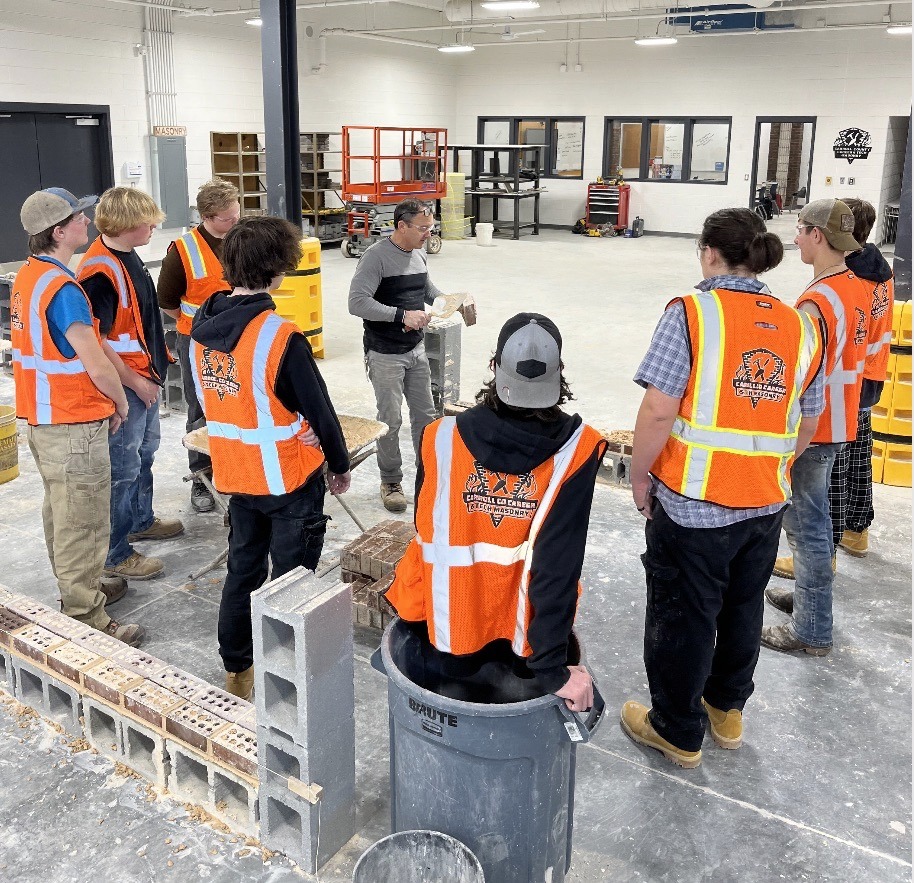
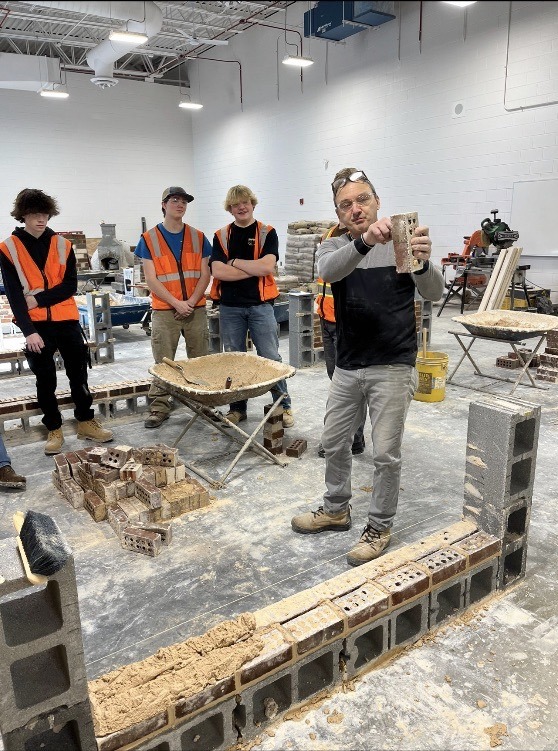
You get offered the job, so what's next? You will have to get fingerprinted; they will also do an extensive background check. This is required by every public school system and private institution. Now that you have all that out of the way. They will be looking at your education. You will have to become a certified teacher just like all teachers in that city, county, or state. This is a state requirement that you can use if you decide to change schools in that state. If you have any coursework, they will look at what you have and see if any can be used towards your teacher certification. Even if you have a degree, you yourself will be going back to school to complete all required courses for that school system. Don't panic; each will give you plenty of time to get the coursework completed, but don't delay it! I would recommend that you do not take any college classes in your first semester to get yourself comfortable and accumulated in your classroom. The good news is that for any college classes you take toward your teaching certificate or degree, you should get reimbursed as long as you complete the class with an expected grade from that jurisdiction.
When preparing your classroom, make it look like a masonry shop; you want to awe the students from day one. Have plenty of samples of brick of all sizes, shapes, textures, and colors.
Block: samples of specialty pieces, all types and sizes. Stone: natural and manufactured. Masonry cement: you can get new empty bags of all types from any of the manufacturers. They will be glad to give them to you. The same is true for all types of masonry anchors, ties, reinforcing wire, flashing, etc. Looking at them in a book is nothing like exposing them to the real deal when it comes to teaching about all these products.
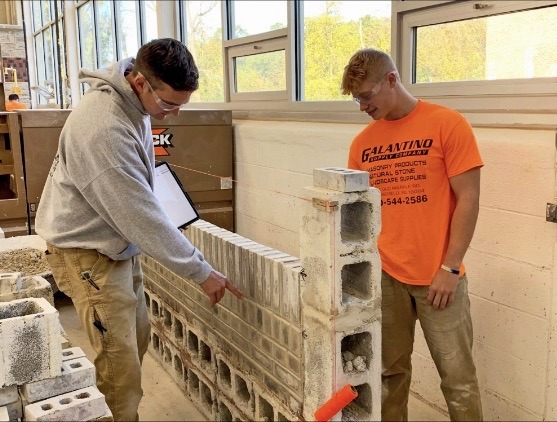
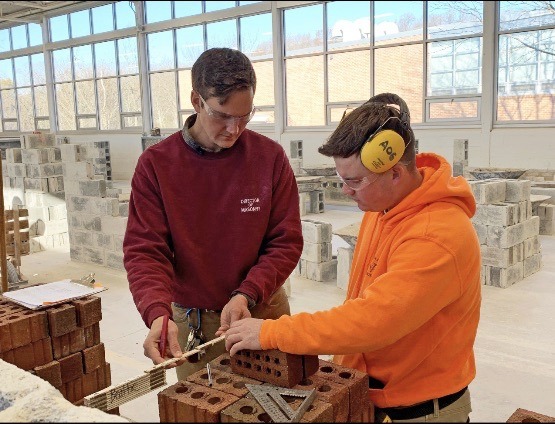
Preparing your shop. You will have students of different levels, so prepare for them. Every school system has different schedules of time during the day and how many semesters the students are in your class. First and foremost, Safety. The most important aspect of working in the shop. Set your shop and run it just like a job site, but arrange it so you will be able to keep an eye on everyone. Also, keep in mind that you will be dealing with young teenagers in secondary and young adults in post-secondary. Post rules and regulations on the wall in the shop and classroom just like you would see at the job. If you have the area to work, set it up for individual workstations; also, have areas where they can work in teams. It will be up to you to set up your shop as you see fit.
Get ready for your students. There is so much to do in such a short amount of time. From learning all the school programs on the computer, taking attendance (which is done at the very beginning of class every day), to learning the grading system, the number of grades that have to be given, type of grades, how they are weighted that you will need on a daily/weekly basis. Your school will have a format for a daily lesson plan. You will have a mentor yourself on how all of this is done. Don't be afraid to ask other teachers for advice on how they handle all that has to be done. Just like the students, listen to them as everyone will explain what works for them. Each will have different techniques. Then, take and use what works best for you. Hopefully, there are lesson plans already in place. If there is, use them and tweak them on how you see fit. You will rewrite them as each class from semester to semester and year to year, as the students will have different learning techniques. As you become a seasoned teacher, this becomes easier. The majority of the programs that I have dealt with around the country use the NCCER (National Center for Construction Education and Research). As I write this, the masonry books are being changed to better prepare our students for the start of their masonry apprentice careers. In order to get your students certified through NCCER, you will have to complete the NCCER instructor training to get your certification. In most school systems, you will not be able to get the students all the hours they need, but you should be able to accomplish the hours needed in the classroom and completion of all competencies in the Masonry level I book.
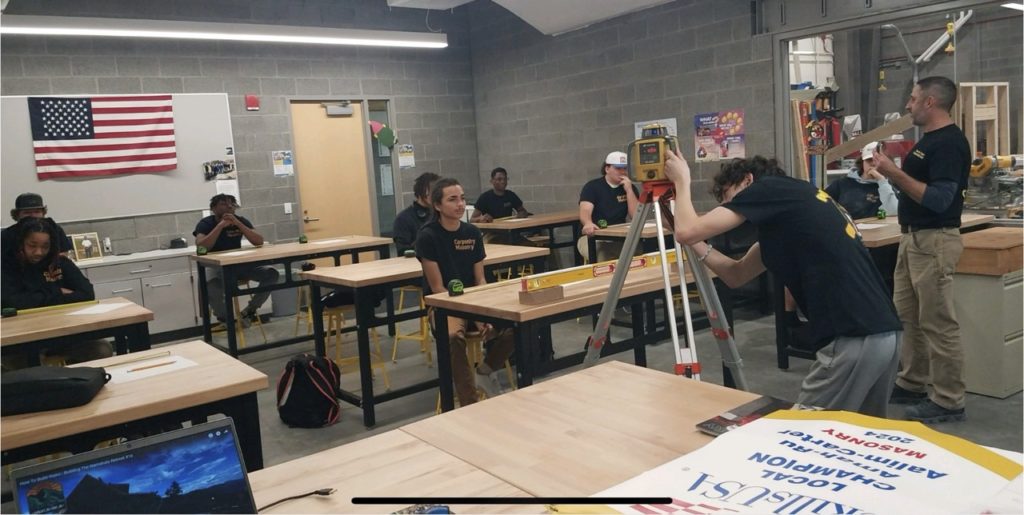
Teaching at a local association, correctional institution, or your local union, the qualifications are not as stringent. Your years of work experience play a bigger role. By joining a union, the apprentices will have so many fields from which you can choose. Brick, stone, tile, marble, terrazzo, pointing-caulking cleaning, refractory, plaster, cement and mosaic work. There is so much to offer to them. The best training facility that I have ever seen is IMI (International Masonry Institute) in Bowie, Maryland, 20 minutes north of Washington, DC.
If you ever get a chance to visit the IMI training center or take your students on a field trip there, it is an incredible place!
Your first year can be so overwhelming it's the most difficult one. There will be many times that you're going to say what I get myself into, especially your first year. It gets easier; you will know what to expect in the following years. There is more help out there than you can imagine; all you have to do is ask for it. Join your local masonry instructor's association, in which the majority are all SKILLSUSA members, your local masonry association as an instructor's member, and the national instructor's association, in which there are going to be many resources for instructors. During the World of Concrete, I spoke to so many contractors, suppliers, and other masonry instructors. Everyone was saying that the industry needs you to know more than ever! You're not going to get rich teaching, but to change a kid's life is PRICELESS. Good luck in your career, and remember, help is only a phone call away.